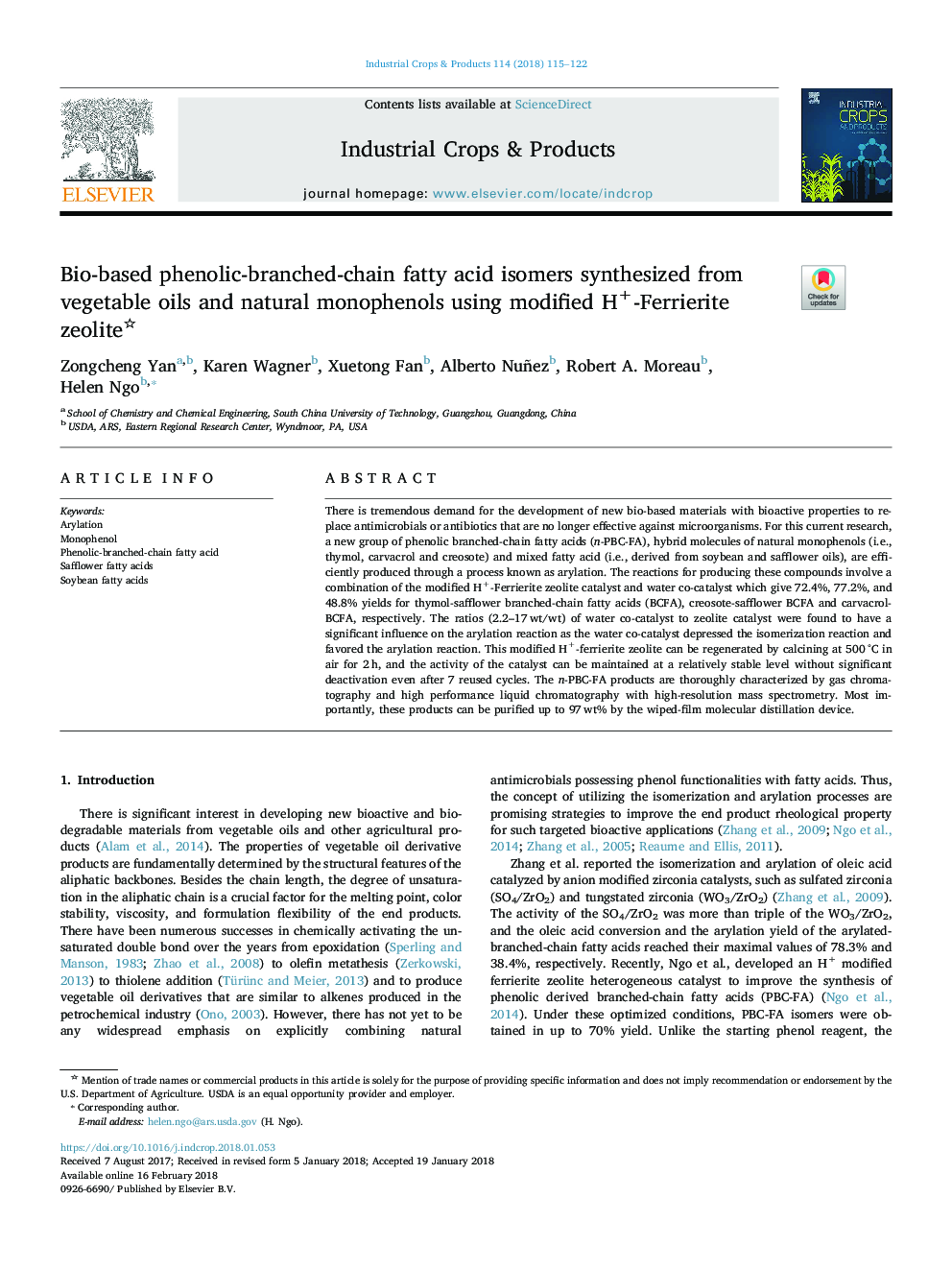| Article ID | Journal | Published Year | Pages | File Type |
|---|---|---|---|---|
| 8880397 | Industrial Crops and Products | 2018 | 8 Pages |
Abstract
There is tremendous demand for the development of new bio-based materials with bioactive properties to replace antimicrobials or antibiotics that are no longer effective against microorganisms. For this current research, a new group of phenolic branched-chain fatty acids (n-PBC-FA), hybrid molecules of natural monophenols (i.e., thymol, carvacrol and creosote) and mixed fatty acid (i.e., derived from soybean and safflower oils), are efficiently produced through a process known as arylation. The reactions for producing these compounds involve a combination of the modified H+âFerrierite zeolite catalyst and water co-catalyst which give 72.4%, 77.2%, and 48.8% yields for thymol-safflower branched-chain fatty acids (BCFA), creosote-safflower BCFA and carvacrol-BCFA, respectively. The ratios (2.2-17â¯wt/wt) of water co-catalyst to zeolite catalyst were found to have a significant influence on the arylation reaction as the water co-catalyst depressed the isomerization reaction and favored the arylation reaction. This modified H+-ferrierite zeolite can be regenerated by calcining at 500â¯Â°C in air for 2â¯h, and the activity of the catalyst can be maintained at a relatively stable level without significant deactivation even after 7 reused cycles. The n-PBC-FA products are thoroughly characterized by gas chromatography and high performance liquid chromatography with high-resolution mass spectrometry. Most importantly, these products can be purified up to 97â¯wt% by the wiped-film molecular distillation device.
Keywords
Related Topics
Life Sciences
Agricultural and Biological Sciences
Agronomy and Crop Science
Authors
Zongcheng Yan, Karen Wagner, Xuetong Fan, Alberto Nuñez, Robert A. Moreau, Helen Ngo,
